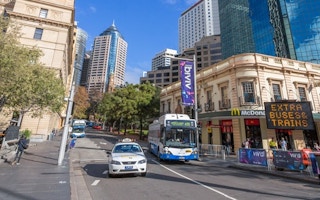Twenty regional governments, representing areas producing 5 per cent of global climate-changing emissions, have committed to targets to cut those emissions, with the majority also setting goals for renewable energy, a platform uniting them said on Thursday.
The Compact of States and Regions, launched last September, said more local governments would join the effort over the summer, making their combined emissions savings one of the most significant pledges to be presented ahead of a new UN climate deal due in December.
The state and regional governments that have already set targets include British Columbia, California, Ontario, Oregon, Quebec, New York, Washington, Rio de Janeiro, Sao Paulo, the Basque Country, Catalonia, Lombardy, Rhone-Alpes, Scotland, Wales, Australian Capital Territory and South Australia.
Christiana Figueres, the United Nations’ top climate change official, told a gathering in France of local leaders from around the world that the actions of cities and regional governments to curb global warming offered huge benefits in public transport, cleaner air and better waste management.
“You are doing nothing less than creating a new reality for the world,” she said. “You are making possible that we are moving toward a low-carbon, high-growth society - both of those together.”
Local governments are playing a vital role in the run-up to the UN climate conference in Paris later this year, said Premier Jay Weatherill of South Australia.
“
No matter how strong national contributions are, in reality this engagement will be empty, if it is not fulfilled by local governments.
French President Francois Hollande
“We recognise that the challenge of climate change is also an opportunity for our state, and we want to ensure a prosperous, sustainable economy and future for our citizens,” he added, urging more local leaders to register their emissions-cutting targets with the compact.
The targets set by the 20 sub-national governments, representing more than 220 million people and gross domestic product of $8.3 trillion, vary in their ambition.
Several have set the bar high, pledging to cut greenhouse gas emissions by 80 per cent by 2050. The German state of Baden-Württemberg is aiming for 90 per cent reductions by 2050, while Australian Capital Territory wants to cut 100 per cent by 2060.
Healthier way of life
On Wednesday, French President Francois Hollande encouraged all local governments to get involved in the fight against climate change and to work for a successful outcome at the Paris climate talks.
“No matter how strong national contributions are, in reality this engagement will be empty, if it is not fulfilled by local governments,” he told the conference in the French city of Lyon.
Regions and cities should also be able to access international climate finance to support their efforts, he added.
Anne Hidalgo, mayor of Paris, and Michael R. Bloomberg, the UN secretary-general’s special envoy for cities and climate change, said they would co-chair a climate summit for local leaders, including mayors and governors, on Dec. 4 during the Paris talks.
The summit will aim to support cities and local governments and their communities in setting more ambitious targets to reduce carbon emissions, put in place realistic plans to meet them, and report on progress.
It will also help ensure city voices are heard at the negotiations, and that their efforts are reflected in any new global climate agreement, the organisers said.
“We want to deliver optimal instruments to reduce the carbon footprint on urban areas, and allow, to the benefit of all, a healthier, more sustainable and more prosperous way of living,” Hidalgo said in a statement.
Fifteen per cent of the world’s largest cities have already committed to cutting their emissions by at least 70 per cent by 2050, it noted.
Hollande also urged local governments to make use of an online tool called the Non-State Actor Zone for Climate Action (NAZCA), developed by the United Nations and the French and Peruvian governments.
Businesses, cities, regions and investors have already showcased more than 2,700 climate initiatives through NAZCA. It offers a platform for evaluating and gaining recognition for their efforts, Hollande said.










